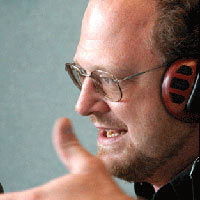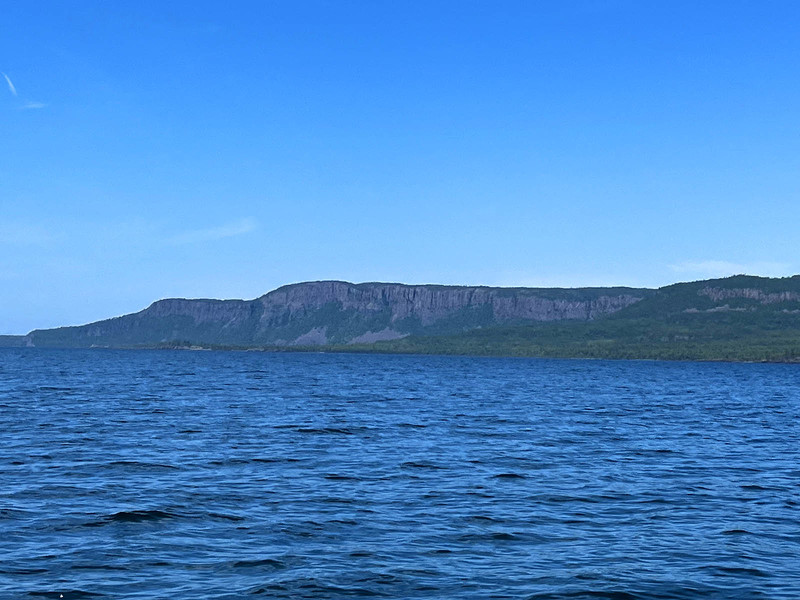The opinions expressed in this piece do not necessarily reflect the opinions of OnMilwaukee.com, its advertisers or editorial staff.
The Great Lakes and oil do not mix, but the BP spill in the Gulf of Mexico has many wondering what's to prevent that from happening in our aqua playground known as the Great Lakes, which also happens to be the largest depository of fresh water in the world.
While the Great Lakes Compact dealt more with water as a commodity, it didn't nail down the states or provinces that signed the pact into any guarantees when it comes to the drinking water we so love.
Congress banned drilling in the lakes in 2005, but laws can change. Before that some Great Lakes states had bans in place except for Indiana, Pennsylvania and Minnesota, but in states like Ohio, the governor there has suggested the state can allow drilling leases on public land such as state parks and shoreline.
In the 1990s, then-Gov. Tommy Thompson, under the influence of big money from oil developers, strongly backed law changes in Wisconsin that would have allowed for so-called "horizontal" drilling in Lake Michigan and Lake Superior. That method has the pipe being drilled from land at an angle underneath the lake bed.
That plan led to the discovery that Wisconsin had no real regulations in place for oil drilling. Those loopholes have been tightened and there is a ban, but environmental groups and candidates are still calling for more.
The liberal-leaning activist group One Wisconsin Now is organizing a movement to call for a constitutional amendment banning the practice.
"What would happen to Wisconsin if the BP oil spill in the Gulf happened in Lake Michigan or Lake Superior instead?" aks the group in its announcement. "Or if thousands of lake trout and salmon were found dead and instead of oil-coated pelicans it was eagles, ospreys, loons and ducks?"
The group points to recent comments by GOP candidates for U. S. Senate, Ron Johnson and David Westlake, who said they do not oppose drilling anywhere, as indicators that the Great Lakes is still being viewed for crude.
In an interview last week, when asked about potential oil drilling in the Great Lakes, Johnson said "I think we have to get the oil where it is."
Westlake called the $20 billion fund set up by BP to pay for claims filed from the BP spill "Nothing more than a shakedown of BP."
A leader of the far right-wing Mackinac Center for Public Policy in Michigan recently called on state and federal officials to lift the ban on oil and gas drilling in the Great Lakes.
In Minnesota, Republican Congresswoman Michele Bachmann echoed Westlake that BP was being "fleeced" for having to establish a relief fund for the victims of the oil spill it caused in the Gulf Coast.
In Ohio, House Republican Leader John Boehner refused to support legislation that would lift the liability cap on BP for the economic and environmental damage it has caused in the Gulf Coast.
In the race for Wisconsin governor, Dem Tom Barrett says he want drilling bans renewed.
"In 2001, I supported a federal ban on Great Lakes drilling, and in 2007 I stood up to BP when they were caught dumping tons of toxic sludge into Lake Michigan."
GOP hopeful Scott Walker's camp has been mum on the issue, but has come out against global warming legislation backed by state Dems.
"It's inexcusable that at the same time high taxes are driving jobs and people from our state, Gov. Doyle and Mayor Barrett are championing global warming legislation that would mandate billions of dollars in new spending to produce the exact same energy we use today," Walker said in April. "Wisconsin families will pay a steep price for these costly new regulations in higher utility bills and the projected 43,000 jobs that will be lost if this bill passes."
Smoke brings fears: Smokers will be heading outside next week under the strong arm threat of the law, but while many more taverns will be sporting patios this year compared to other years, who's going to be enforcing the smoking ban still has people wondering what to do.
Milwaukee's Licenses Department doesn't have an exact figure as to how many new patios were approved for taverns and restaurants since the beginning of the year, but "anecdotally, the Licenses Division has seen a marked increase in requests in general as compared to previous years." the office said.
In Milwaukee, the big smoking crackdown of 2010 will be lead by the Police Department for now. That doesn't sit too well with Ald. Bob Donovan, one of the city's most outspoken observers of all things law enforcement.
"Quite frankly, I find this directive absolutely insane, especially given the fact that our officers already don't respond to unverified burglar alarms, car break-ins, and a myriad of other quality of life ordinance violations," Donovan said. "But oh boy, let's make sure our officers are right there when some poor dude lights up in a corner of their corner tavern or a nightclub restroom."
The Police Department said any calls for smoking violations will be treated as the lowest priority the department has, but Donovan still calls the police plan "the epitome of absurdity."
City officials have said they want violations to be issued under the auspices of city ordinances, meaning the case -- and the fine money-would go through Municipal Court.
As written, the money and legal process goes through the district attorney's office on the county level. A city rule change can switch that simply, however the Common Council will be holding its last meeting until September on July 27, making any sort of expeditious move in that direction a tad dubious.
"If the state can find $1 million to study racial profiling, then at least it should be able to find the resources to send to Milwaukee to cover the costs of having our officers bust illegal tavern smokers," Donovan said.
Squads for squatters: Police presence on a much more important issue had city officials wondering how squatters were going to be kicked out of foreclosed homes. The city received $30 million in federal money to help residents deal with the housing crisis, but didn't put any money toward protecting the properties. Given that there's sort of a moratorium on additional police overtime, it left aldermen scratching their heads on what to do.
"This is the only area ... we didn't think about," offered Ald. Joe Davis Jr. at a committee meeting this week.
Davis wants $200,000 more to go to the police for the empty house patrols.
"I know there's been some distrust with the Milwaukee Police Department but this is a different Milwaukee Police Department and we have to get past that distrust," he said.
Ald. Willie Hines noted that $200,000 would go pretty fast for that job.
Others wanted to wait on the money until a mayor's task force on foreclosures had a meeting in order to deal with the various issues or wanted to use a different source for funding.
The committee approved the $200,000 and the measure goes before the full council next week.
An avid outdoors person he regularly takes extended paddling trips in the wilderness, preferring the hinterlands of northern Canada and Alaska. After a bet with a bunch of sailors, he paddled across Lake Michigan in a canoe.
He lives in Bay View.







